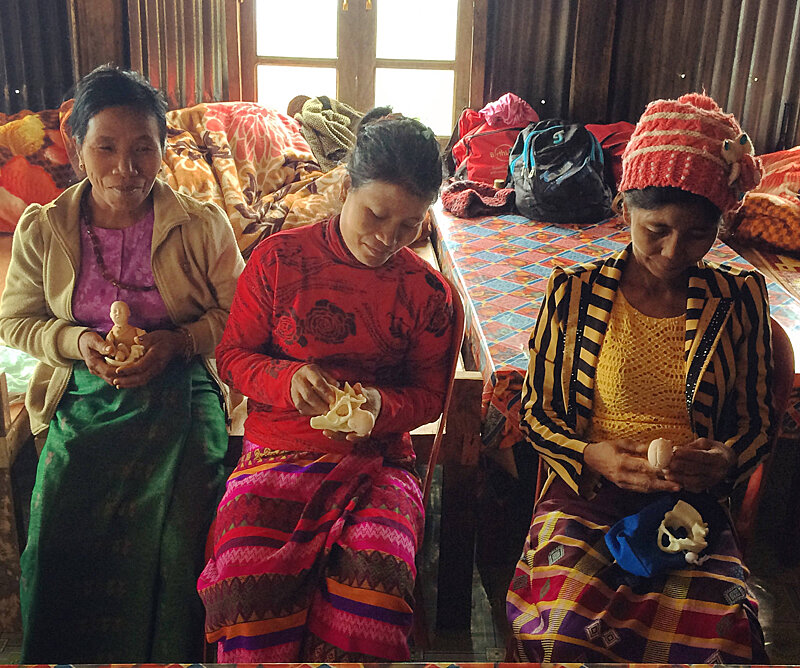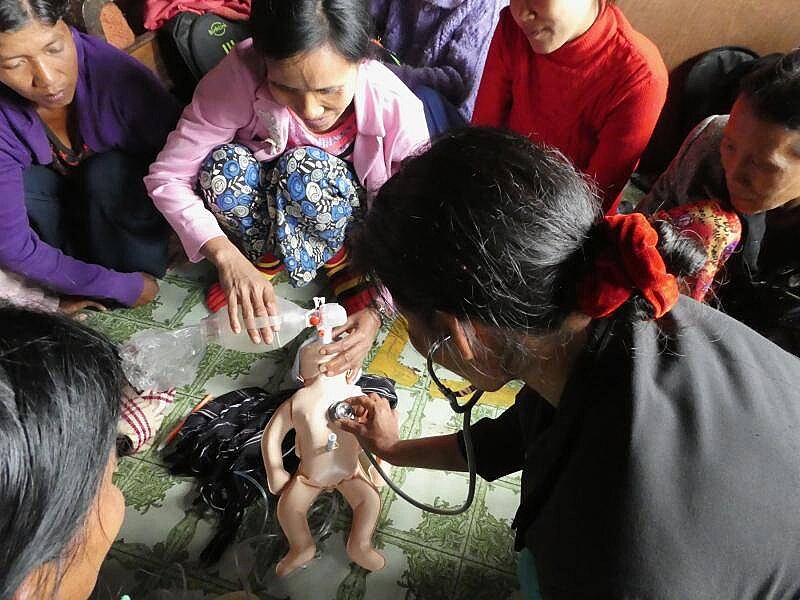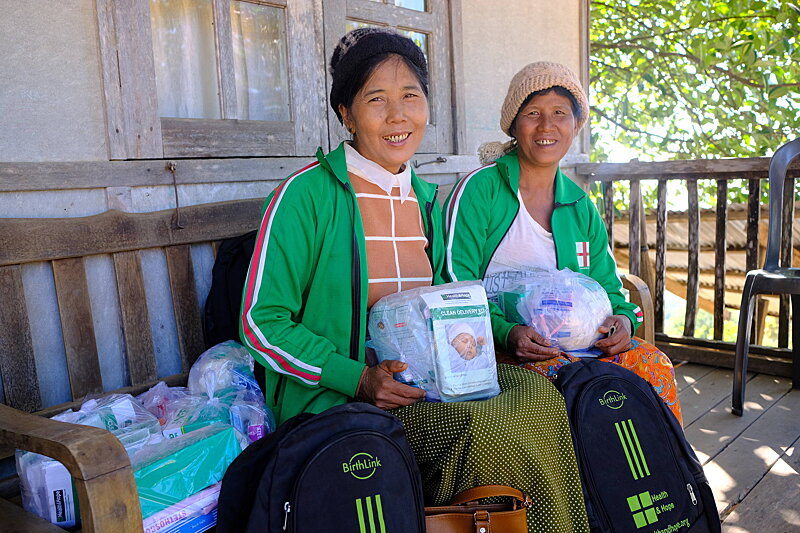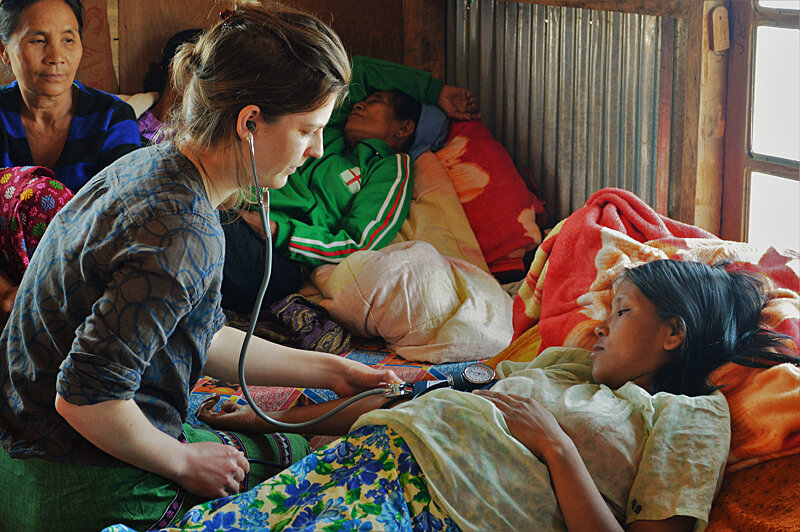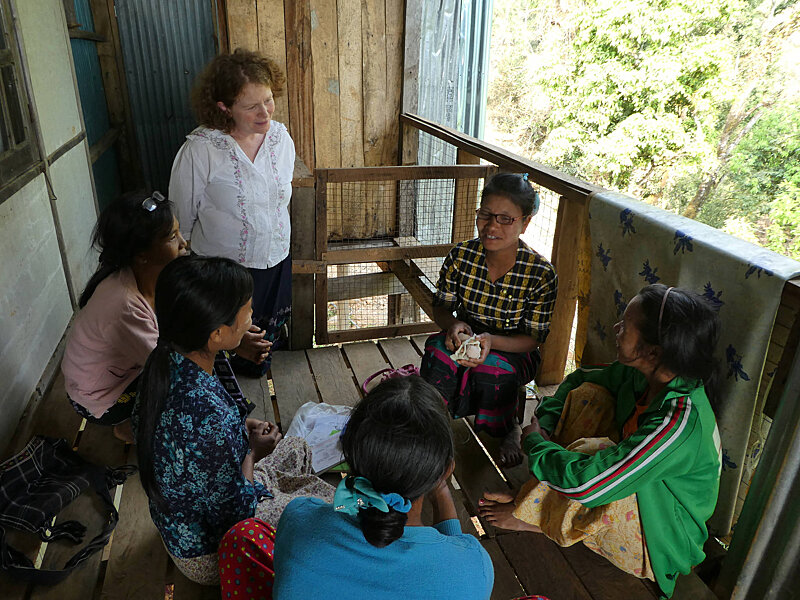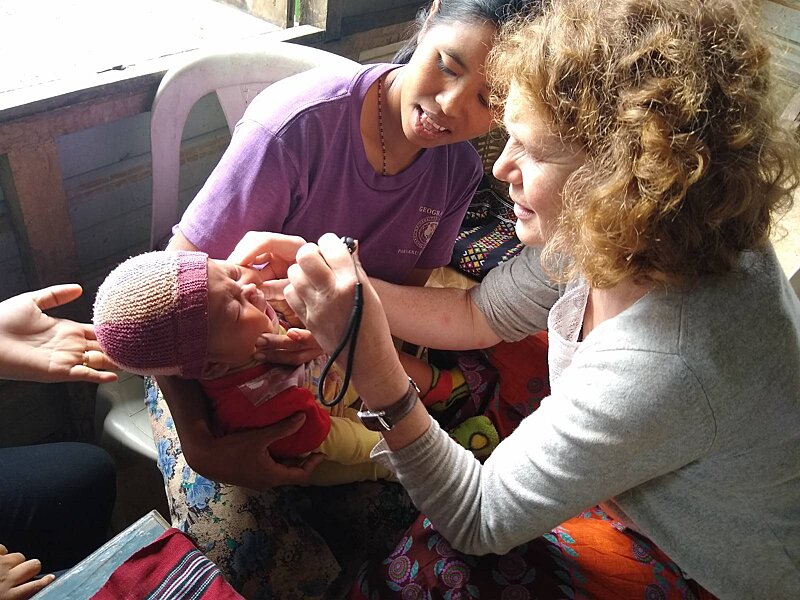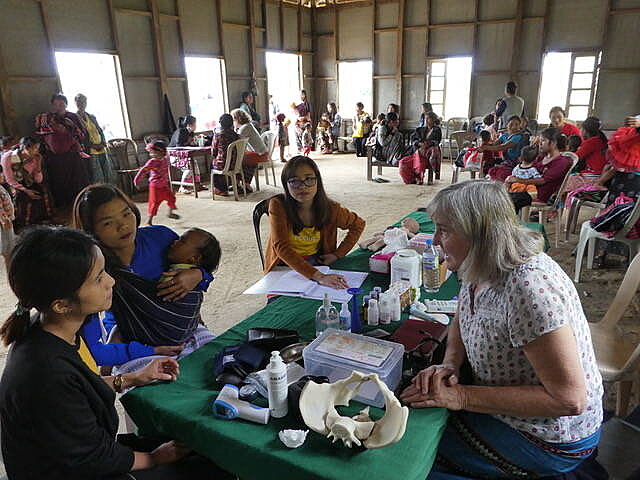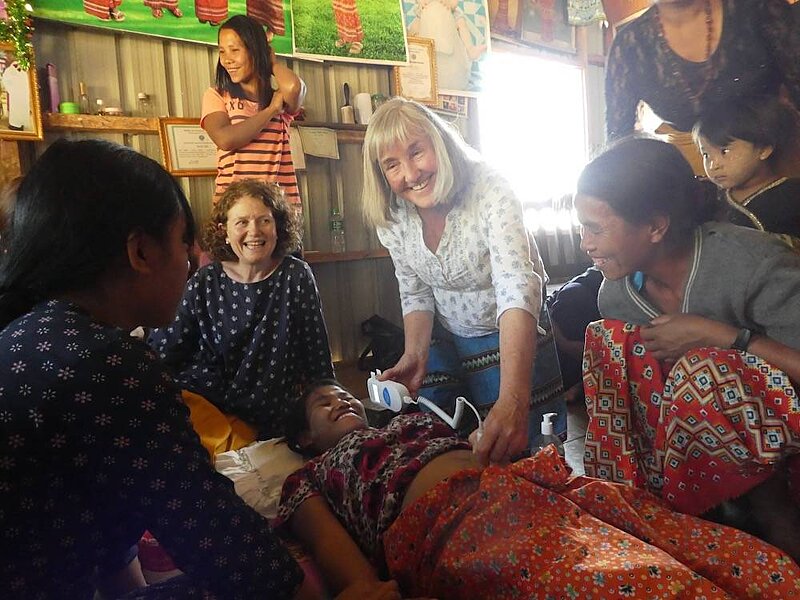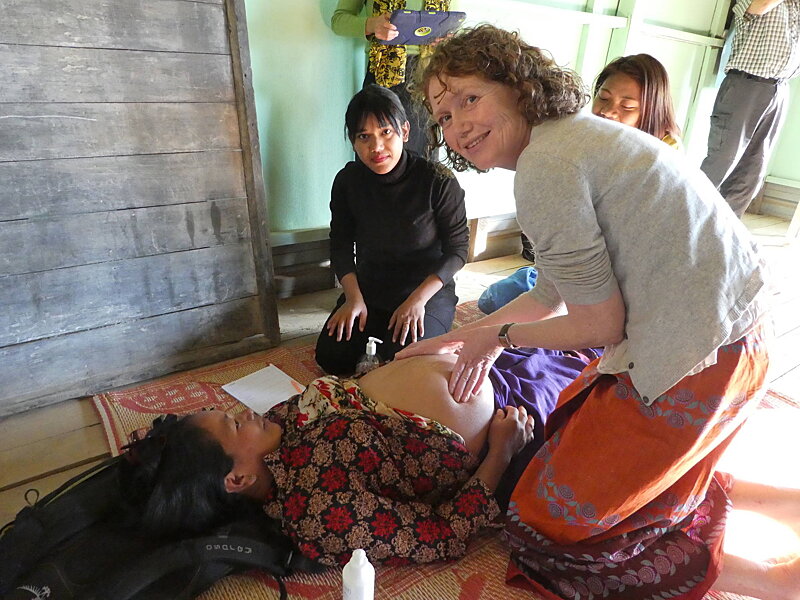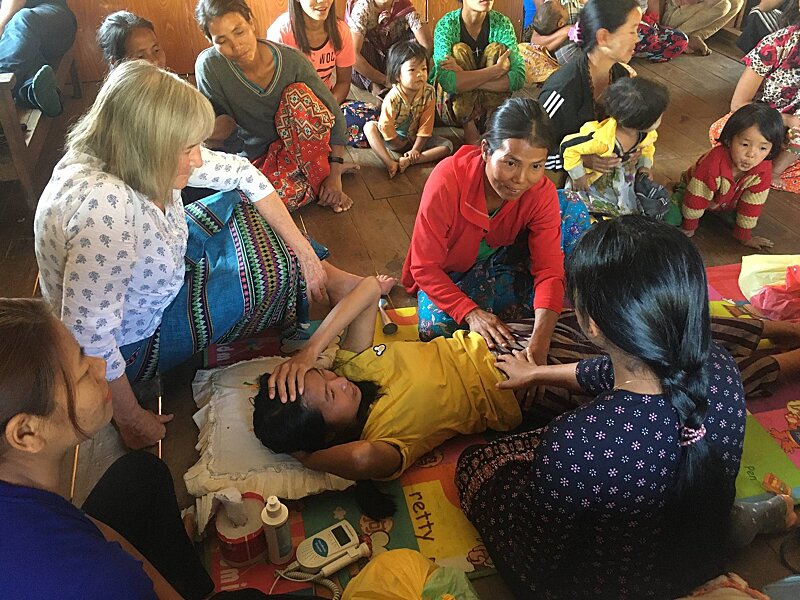Health
Our goal is to improve access to public health and primary medical care in Chin State
Health indicators in Chin State continue to be among the worst in Myanmar. The primary cause of death is from infectious diseases including pneumonia, diarrhoea and malaria – most of which are preventable and treatable. Medicines are scarce and expensive and despite there being numerous health facilities, many are empty and all are understaffed. Due to the distance between villages and towns, patients only travel to a hospital when their deteriorating health conditions are at their worst, with some arriving too late.
The health crisis in Myanmar has been exacerbated by the ongoing effects of the military coup.
Primary Health Care
Our community health projects includes maternal, newborn, and child health, sexual and reproductive health and rights, training for Community Health Workers, mobile clinics, fixed clinics and referral pathways. We target underserved areas and implementation is carried out in collaboration with a network of local partner organisations. Over the last 12 months (2024-25) we have achieved the following:
- 21 individuals were equipped as Community Health Workers Trainers, who then delivered the training to 329 Community Health Workers, each selected from their respective villages.
- Over 7,000 patients have received treatment at the 9 community clinics (fixed clinics).
- Over 4,800 patients were treated through outreach services via mobile clinics.
- Community Health Workers have provided consultations to over 59,000 individuals.
- Over 6,400 children were screened for signs of malnutrition. Among these, 286 children were identified as malnourished and received treatment through the provision of nutritional supplements.
- Over 270 patients were referred to hospitals for secondary-level treatment. Medical and transportation costs were covered to ensure access to appropriate care.
- 843 pregnant women received antenatal care through our fixed clinics.
Community Ambulance
Out of many, one of the biggest problems faced by displaced families is timely access to medical facilities during medical emergencies, childbirth and sickness. Due to their remote location and difficulties in access by road most of the existing medical and ambulance services do not have ability to reach hard to access rural areas. This is particularly relevant for pregnant women who struggle to access antenatal care and supported delivery by appropriately trained clinicians, especially for the communities who often cannot access health care.
Local information has shown that there are no ambulance services available at all in remote areas we serve. In addition, many of the villages are still not accessible by normal vehicles especially during the monsoon except by vehicles which are four-wheel drive (4WD).
Health & Hope have sought to meet this need through establishing a community ambulance service to reach out and respond to medical emergencies in the most remote and isolated locations, where the rest of the medical services are not able to reach.
This will improve the accessiblity of urgent and emergency healthcare for displaced, conflict affected and low resource community populations who are not yet reached by the existing medical and ambulance services. This is due to launch imminently with additional funding.
Our Health projects prior to the military coup
Prior to the military coup, from 2008 to 2021, Health & Hope trained 791 Community Health Workers (CHWs), 32 Area Coordinators (ACs) and 126 Traditional Birth Attendants (TBAs). In addition, 14 local Trainer of Trainers have been trained who have in turn delivered Maternal & Neonatal health training to 101 TBAs in remote villages. This network of locally trained health workers forms part of the community-led response to health challenges across the region, providing support to a population of 150,000 people across 445 partner villages.
Please click the links below to our historic projects:
Summary
The project provided training in life-saving midwifery skills to Traditional Birth Attendants (TBAs) in 24 remote villages in western Myanmar through a team of local trainers . This provided support to a further 180 women each year in pregnancy and childbirth and will facilitate a sustainable change in knowledge, attitude and practice surrounding maternal and neonatal care in rural Chin State.
Challenge
Most villagers in rural Myanmar live a three-four days' walk from a health facility, making pregnancy and childbirth dangerous. In Western Myanmar, only one in two pregnant women will be seen by a trained healthcare working and only 6% of babies are born in a health facility.
Superstitions surrounding childbirth, combined with poor practices and lack of education, have resulted in an under-5 mortality rate which is double that of the rest of the country.
Solution
We provide training to:
- Traditional Birth Attendants (TBAs)
- Older women who hold status within their communities
- Community Health Workers (CHWs), who have been selected by village leaders and have previously attended our 6-month training programme
TBAs and CHWs are available 24/7 in each village. Working hand in hand, they are able to address the vast majority of health needs through education and implementing preventative practices. TBAs also provide care for women throughout pregnancy and labour.
The project started in 2013 and has given 126 women from 58 villages the opportunity to attend a bespoke, evidence-based training course, enabling them to support mothers and babies throughout pregnancy, birth and early infancy. To ensure the expansion and sustainability of this project, a ‘Train the Trainer’ initiative was piloted in 2018, assisted by a team of UK-based midwives.
Between 2018 to 2021, 15 local Trainer of Trainers (ToTs) led their own community-based workshops in remote rural villages. As a result, a further 101 TBA’s and 123 women accessed the training programme. The ToTs are well respected in the villages that they serve and also act as a network for the distribution of Clean Delivery Kits (CDKs) and key medicines, such as pregnancy vitamins, iron tablets and paracetamol, to TBAs.
Firstly I want to say I am very grateful for the help of Health and Hope. Without them and this opportunity my village and others close by would have no access to health care. One situation that stands out for me was whilst walking in the forest looking for elephant yam. I heard a lot of crying in a nearby village. I went to see what was happening. As I arrived I found a mother delivering her baby. There had been a lot of blood loss and the mother was very sick. The father, children and the villagers were all crying. They were just waiting for the mother and child to die as they couldn’t do anything to help. I quickly assessed the situation and was able to help assist and safely deliver the baby and save the mother even though I had no equipment.




